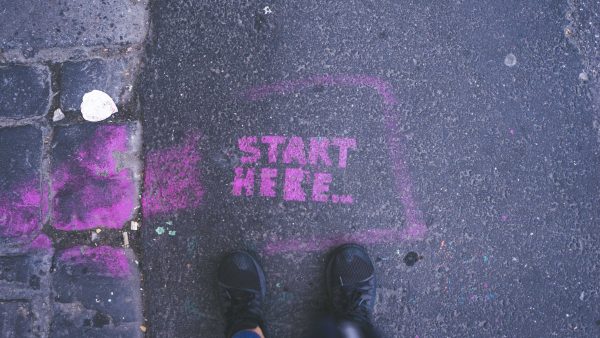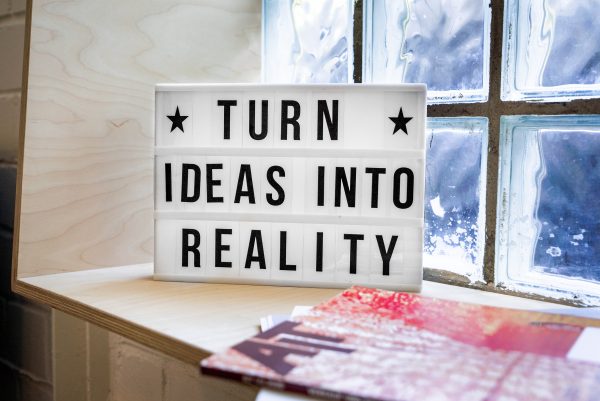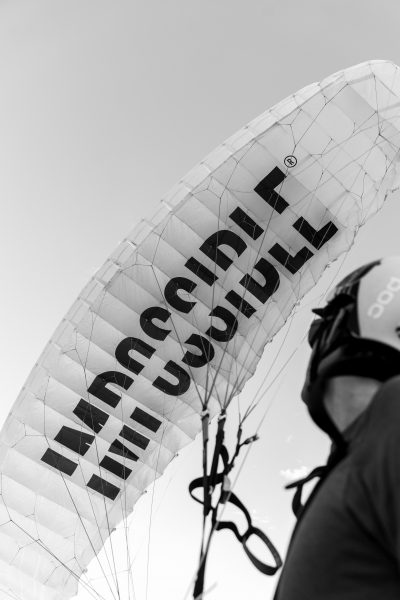 Sports Psychologist Dr Lynn Pal writes exclusively for The Arabian Breeders’ Magazine. This article, Impossible or ‘I’m Possible’ was printed in March 2022. To sign up to the magazine for print-only content, click here.
Sports Psychologist Dr Lynn Pal writes exclusively for The Arabian Breeders’ Magazine. This article, Impossible or ‘I’m Possible’ was printed in March 2022. To sign up to the magazine for print-only content, click here.
Impossible or ‘I’m Possible’

Make sure your worst enemy does not live between your own two ears.
We have all had days where we plan to do something such as go for a jog or to the gym, write an article, complete a chore, or exercise our horse, but at the end of the day we find we do not have the motivation to do it. Sometimes we might be brutally honest and acknowledge we are not motivated, but often we will find excuses that we do not have time, the weather is bad, or we are tired. Motivation is a key topic researched by psychologists. Every single person has the ability to motivate themselves. We are all capable of initiating action and performing tasks. While every person is capable of motivating themselves, often people do not know how to motivate themselves therefore failing to fully achieve what they are capable of.

Break down each task or goal into simple step by step actions. Achieve one step at a time.
Thinking about doing something will not make it happen. You have to take action. For example, thinking about going for a jog is not likely to make you do it. If you think about how tired you feel, see it is raining, or check what you must do after going for a jog, it may make it less likely you will do it. Sometimes you have to break down the task and simply take action. For example, start with putting on your trainers. Next go to the front door, jog for five minutes, then jog for another five minutes. Before you know it, you have completed the task. Many times, the hardest part of a task is the start.
It is the same with writing an essay or document. Start with sitting in front of your device. Next turn on your device. Follow this action with opening the correct document or software. Start by typing a word. Follow this with a second word. Now make a sentence. Next a second sentence. In both of these cases, if you had concentrated on jogging for 20 minutes or writing a chapter or designing a presentation, it is likely you will overwhelm yourself with the enormity of the task causing stress. Often, we are focussed on perfection but at the start of the task it is not about achieving a personal best or writing the prefect document – it is simply about getting started. Once you break it down a task into small steps it now becomes manageable.

Whether you think you can or you think you can’t, you are always right.
Every task or goal begins with the way you think. The key to being successful in a task or goal is to control your thoughts just before starting the task. If your thoughts are negative before you start a task, such as thinking “I am struggling”, “I find this hard” or “I cannot do it”, it will be difficult for you to get into ‘the zone’. Constantly questioning your values, expertise, and skills will promote demotivation leading to a cycle of a lack of self-worth. This can result in you finding it hard to complete the task, allowing yourself to be easily distracted, quitting the task, or missing deadlines.
When you believe, you achieve.
Once you are able to start a task, how do you keep motivated especially during the repetitive boring parts? No matter how much you love what you do, there will always be periods where you feel flat or tired, or unmotivated to do a task. This will often result in a negative mindset developing about the task. Many of us will start to develop thoughts that question our ability to perform the task – “what if I am not good enough”, “I am not ready to do this”, or “this is an impossible task”. Periods of uncertainty and instability start to grow. For some this negative mindset can last a few minutes or hours. For others it can last for days, weeks or even years preventing us achieving and accomplishing things we are capable of.
Life itself is hard and the routine tasks we need to complete daily are difficult enough without having a constant voice in our head questioning our capabilities and skills. Imagine trying to make a cup of tea with someone standing next to you questioning your every move and telling you that are you not good enough. Imagine thinking about making a cup of tea but the voice is saying to you “what is the point as it will not taste good”. This thought does not encourage you to make a cup of tea. Now imagine experiencing thoughts like these on important difficult tasks like before you ride, perform, or write a document. If all your thoughts are constantly negative and you are always questioning your skills and abilities, it will eventually impact your mental health and your overall performance at work.

Turn the impossible to possible.
The first step in stopping the cycle is to notice the negative and unhelpful negative thoughts. Become aware of what you are telling yourself. There are three types of negative thoughts you should be aware of.
The first one is what is known as catastrophising. This is when you believe something is far worse than it actually is. It is thinking things such as “this is the worst mistake anyone has ever made” or ‘no matter what I do, I will never be good enough’.
Second is personalising everything and believing everything that goes wrong is a personal attack on you – “it always happens to me”.
Finally, black and white thoughts where things are either perfect or a disaster. You do not allow a middle performance. It is either good or bad. You constantly use words such as “I always perform badly when it counts”, “I never perform well” or, ‘’I am not good enough’’. You believe you cannot learn a skill or perform a task.
Every one of us has negative thoughts but some of us believe these thoughts. What can we do? We need to question these thoughts. We need to find evidence to prove these thoughts are wrong. Remember the time you completed a task. Remember the skills you have learnt, for example learning to swim or ride a bike or drive a car. These are evidence you can learn new skills. These are evidence you have the ability. Remember the compliments you have received from work colleagues, friends, family, examiners, or judges. Being aware of our thoughts is the first step to continuing with a task and not giving up when things go wrong or we make a mistake.
Just because you think something it does not make it true.
Remember opinions are not reality. The past cannot be changed. Things improve with time. If you do not try, you will never improve. You do not improve or learn a skill by waiting for motivation. You have to start by taking action.

Top tips
- Start off any new task easy and slowly increase the effort and pressure. Trying too much too soon can result in tense/sore muscle or stress. This will result in the task no longer being fun or enjoyable. At the beginning be realistic of what you can expect. Aim for small but regular improvements.
- Establish a routine. Once you get going on a task you need to keep up the effort to make sure you stick with it. Make it part of a regular schedule. Pick a time and place for your task. It will soon become a habit.
- Make the task your priority. Put it at the top of your things to do list daily. Make a commitment to your task.
- Keep a journal or diary of your progress. Even make a weekly or monthly graph of your improvements. Visualising your improvements will help you stay motivated.
- If you find you are struggling with a task, take a 10 minute break. Set an alarm. Have a drink, listen to a song, or open a window and get some fresh air. A simple 10 minute break can make a massive difference to reset.
- Before you start a task break it down into small chunks. During the task, just concentrate on each chunk rather than thinking about the whole task. After each chunk is completed take a moment to appreciate what you have achieved. Congratulate yourself on completing each chunk of the task.
Dr Lynn Pal [BSc (Hons), PGDip Sport, PGC (BPS personality A & B), PGDip CBT, MBCT, PhD, PGCHE, C Psychol.] is a Neurobiological and Behavioural Chartered Psychologist with a background in Biomedical Sciences and Psychology. Specialist professional qualifications and training include cognitive behavioural therapy, mindfulness, sport psychology and psychoneurobiology. Experience includes 20 years in teaching undergraduate and postgraduate students, an academic career including national and international research publications, consultancy work in national audits and national/international sporting teams, research supervision and a portfolio of sport, health and clinical clients.
Dr Lynn Pal provides free sport psychology tips and research updates on her Facebook page. If you are interested in working with Lynn please e-mail lynn.s.pal@gmail.com.

For more features from The Arabian Magazine, click here.











